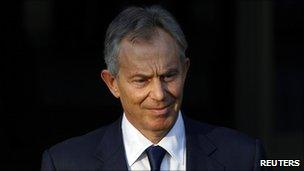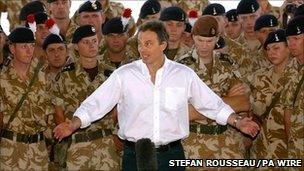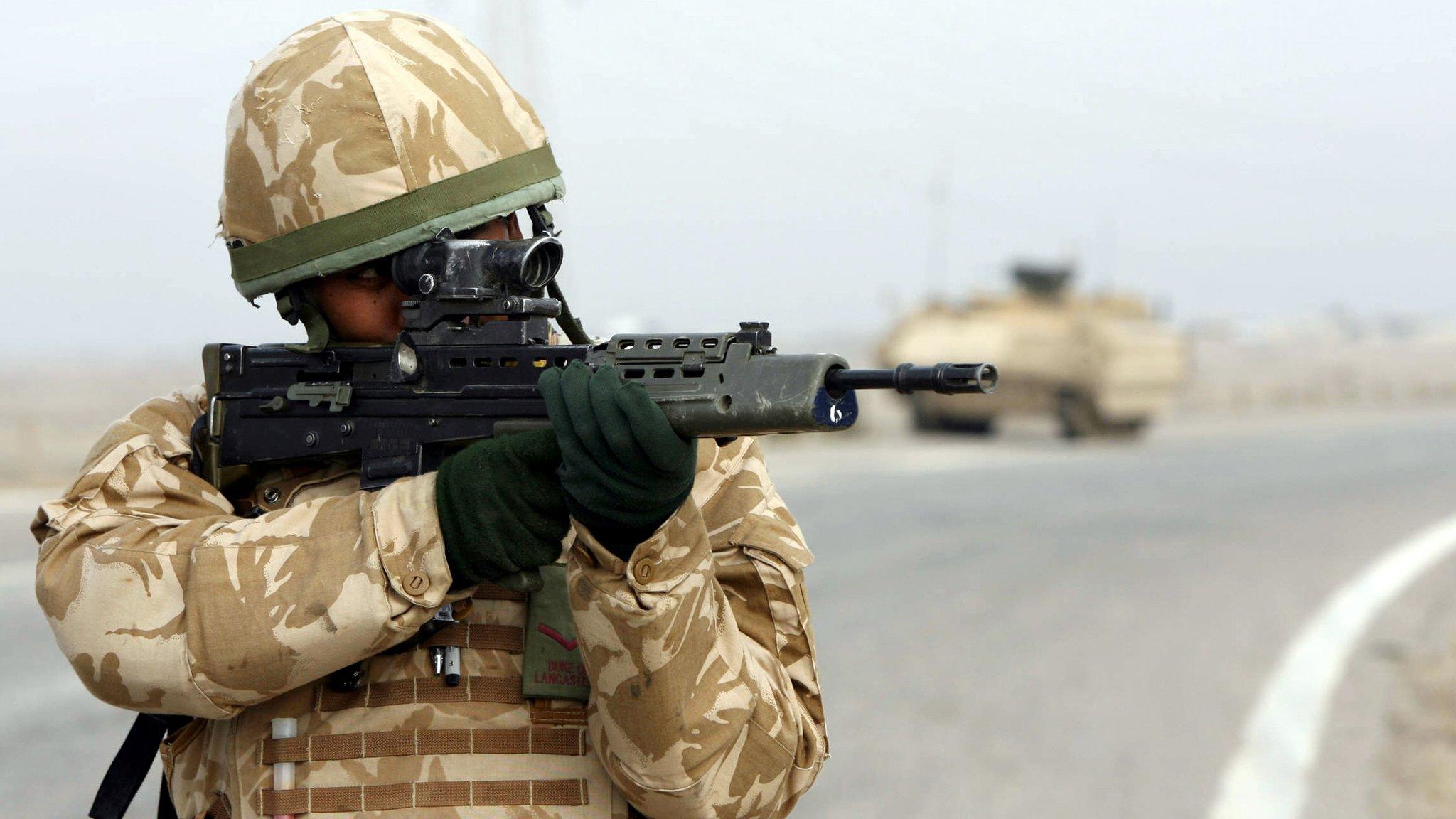Chilcot Inquiry: Tony Blair's second appearance
- Published

Former Prime Minister Tony Blair leaves the Chilcot inquiry after giving evidence for a second time
Former Prime Minister Tony Blair came out swinging during his second and final round at the Iraq inquiry, justifying his support for President George Bush, the invasion and urging a hardline against a new adversary - Iran.
But the inquiry did manage to land a couple of blows over the question of legal advice.
Mr Blair was forced to concede that, in both public comments and private meetings in early 2003, he claimed that the UN had authorised military action when he knew that his attorney general was saying that it had not. Lord Goldsmith later fell into line.
Mr Blair also conceded that Lord Goldsmith should have been brought into the UN discussions more fully - but only, Mr Blair argued, because then the attorney general would have agreed to the policy more quickly.
So what else emerged from this session?
Tony Blair made clear to his staff his support for George Bush a year before the invasion. In March 2002, he wrote to his chief of staff suggesting that the West should be "gung-ho" about removing Saddam Hussein because of his oppressive regime. Mr Blair did not concentrate then on weapons of mass destruction (WMD). Indeed in the memo he said this threat did "not seem obviously worse than three years ago". That contradicts his later argument that the threat was "growing".
There was no "smoking gun" over support for President Bush. The inquiry knows what he said to President Bush in private but these talks have not been released. The speculation had been that the prime minister had gone beyond what he said in public but Mr Blair said there was no "blank cheque". He accepted that he was "up for the policy and we will be with America" but said he steered the Americans to the UN first.

The then prime minister on a 2003 visit to Basra-based troops
The panel chairman Sir John Chilcot again complained about not being able to release the private papers but this is unlikely to change and Mr Blair offered no support. It will no doubt undermine confidence in the final report.
Mr Blair held to his claim that 9/11 changed everything because of the risk that terrorists could get hold of weapons of mass destruction. It was an attack not on America but the West. The inquiry could have questioned him as to whether Saddam Hussein was likely to side with al-Qaeda, but it did not and he had the floor to himself on this.
He continued his linguistic retreat in his claims about Iraqi WMD but is still holding to his final redoubt. He used to state that Iraq had "weapons". When no weapons were found, the word used was "programmes". But that implies plans, budgets, personnel, reports, and these proved to be absent also. So now, as in his first round of evidence a year ago, he further downgraded the concept of Saddam's WMD to "intent".
He played the French card again. He blamed the then President Jacques Chirac for blocking any second UN resolution which might have explicitly justified force. Two of his staff expressed embarrassment at this in their earlier evidence - just published - but Mr Blair stuck to his position on this, as on so much else. There was no point in giving Saddam more time over the inspections, he asserted. What was needed was not more time but a "change of attitude". One panel did question him on this but did not get very far.
He gave a hint of the pressures he was under when he talked at the end about the "tough" relationship with the US. The UK had to be "realistic" that it would at times be "difficult and hard". But he said it was "worth it".
He did express regret at the loss of life, and said that a year ago he had not done so because he thought a question about regret referred only to his decisions. Someone shouted: "It's too late."
- Published21 April 2015
